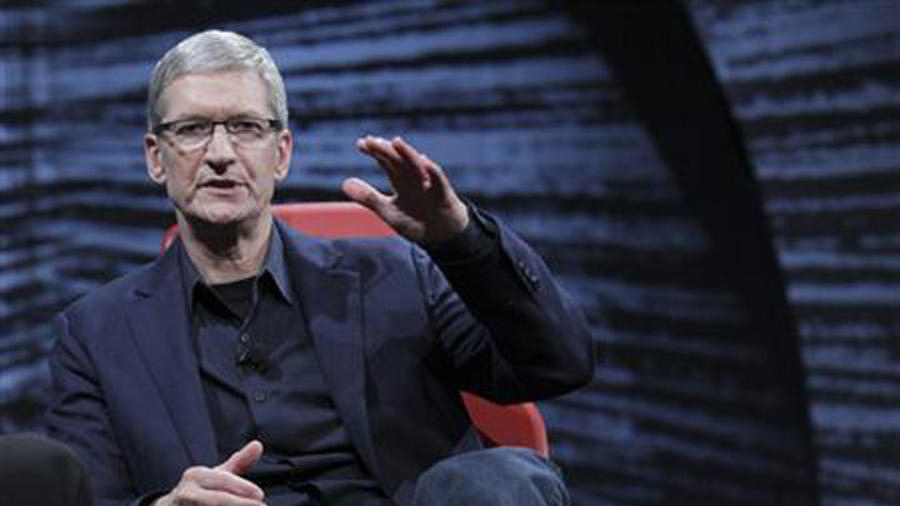
Sign up for breaking news, reviews, opinion, top tech deals, and more.
You are now subscribed
Your newsletter sign-up was successful
After a heated weekend of backlash from the FBI and San Bernardino victims, Apple shows no signs of talking back its refusal to create a backdoor into the shooter's iPhone, according to CEO Tim Cook's recently leaked internal memo to his staff.
First reported by BuzzFeed News, Cook sent an email to Apple employees Monday morning, thanking them for supporting the company's ongoing fight with the FBI. The ongoing dispute between the two pits the argument between maintaining every iPhone users security (Apple's side) versus seeking crucial evidence for the investigation into the tragic terrorist attack in San Bernardino, Calif (the FBI's side).
The memo is more emotional than Apple's first, public statement, restating the Cupertino company's stance on not bypassing its own security to protect its customers, "whose data is under siege," the memo reads.
"We work hard to improve security with every software release because the threats are becoming more frequent and more sophisticated all the time," Cook continues. "We all know that turning back the clock on that progress would be a terrible idea."
On top of delivering a more impassioned defense of Apple's position on cracking its encryption for the FBI, the email touches on Cook's regret for having to take this defensive stance.
"Apple is a uniquely American company," he wrote. "It does not feel right to be on the opposite side of the government in a case centering on the freedoms and liberties that government is meant to protect."
The long, long way forward
The Apple CEO also suggested the best way forward would be for the US government at large to withdraw its demands to unlock the iPhone in question. As important as this one case is, the data security of millions of law-abiding citizens is also at stake. (At least that's Apple's take.)
Sign up for breaking news, reviews, opinion, top tech deals, and more.
Therefore, Cook has called Congress to "form a commission or other panel of experts on intelligence, technology and civil liberties to discuss the implications for law enforcement, national security, privacy and personal freedoms" – a forum that the iPhone maker "would gladly participate in."
Passions over the FBI versus Apple dispute are beginning to bubble over. This past weekend, FBI Director James Comey explained on the bureau's website that the San Bernardino litigation is about the victims and justice, and not "about trying to set a precedent or send any kind of message."
Some victims of the San Bernardino attack have announced, Reuters reports, that they will file a legal brief to support the US government's demands for Apple to unlock the recovered iPhone belonging to the shooter.
At this rate, legal recourse may be the most likely route – especially if Apple doesn't comply with the Department of Justice's court order by February 26, which doesn't look likely. (Apple just hired a crack legal team, after all.)
And if either party were to allow this case to go to court, it almost definitely wouldn't end quickly. On that kind of public stage, the dispute could set a new precedent for digital security and the US government's reach over private companies.
- Everything you need to know about the FBI vs Apple case

Kevin Lee was a former computing reporter at TechRadar. Kevin is now the SEO Updates Editor at IGN based in New York. He handles all of the best of tech buying guides while also dipping his hand in the entertainment and games evergreen content. Kevin has over eight years of experience in the tech and games publications with previous bylines at Polygon, PC World, and more. Outside of work, Kevin is major movie buff of cult and bad films. He also regularly plays flight & space sim and racing games. IRL he's a fan of archery, axe throwing, and board games.